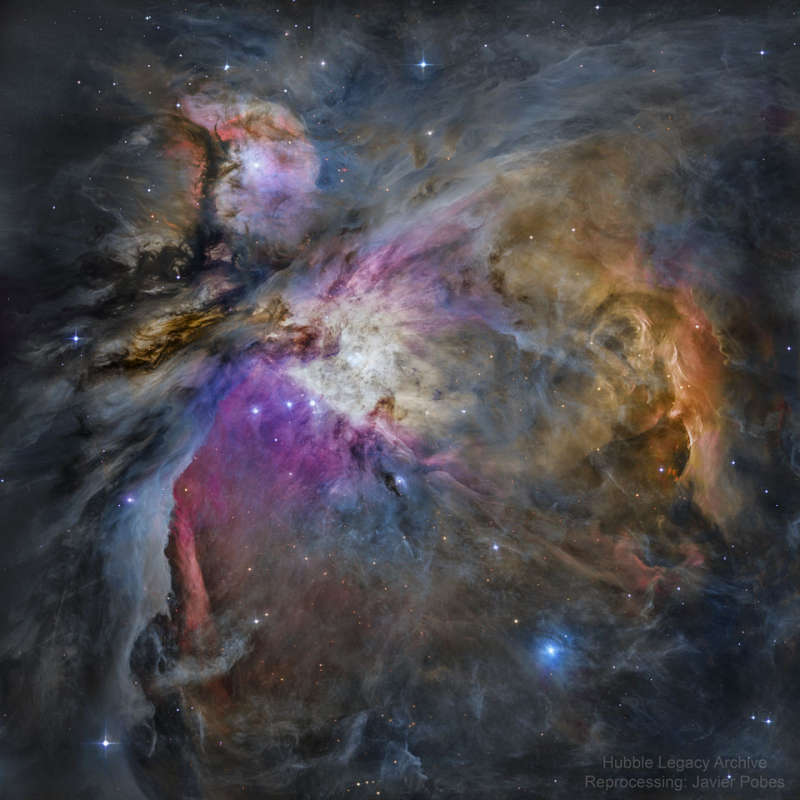Orion Nebula: The Hubble View

Explanation:
Few cosmic vistas excite the imagination like
the Orion Nebula.
Also known as
M42,
the nebula's glowing gas surrounds hot young stars at the edge of an
immense interstellar
molecular cloud only 1,500 light-years away.
The Orion Nebula offers one of the best opportunities to study how
stars are born partly because it is the nearest large
star-forming region,
but also because the nebula's
energetic stars have blown away
obscuring gas and dust clouds that would otherwise block our view -
providing an intimate look at a range of ongoing stages
of starbirth and evolution.
The featured image of the
Orion Nebula is among the sharpest ever, constructed using data from the
Hubble Space Telescope.
The
entire Orion Nebula spans about 40
light years
and is located in the same
spiral arm of our Galaxy
as
the Sun.
Authors & editors:
Robert Nemiroff
(MTU) &
Jerry Bonnell
(USRA)
NASA Web Site Statements, Warnings,
and Disclaimers
NASA Official: Jay Norris.
Specific
rights apply.
A service of:
LHEA at
NASA /
GSFC
& Michigan Tech. U.

